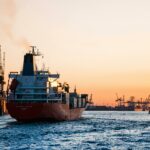Network of NGOs call to improve air quality around the Mediterranean

An alliance of NGOs calls for better regulation to improve air quality and therefore protect the health of more than 260 million citizens as well as marine ecosystems from the harmful effects of shipping in the Mediterranean Sea. The alliance has been founded as of 2016 and gathers mainly NGOs from the Mediterranean such as Spain, France, Italy, Malta, Greece but also beyond such as NABU from Germany and ZERO from Portugal. Shipping plays an important role in people’s lives around the Mediterranean. But despite its advantages the use of dirty fuels and the lack of proper exhaust after-treatment technology puts a threat to human health and ecosystems. After having declared the mediterranean an Emission Control Area for sulphur effective from May 2025, the NGOs now push to also establish an Emission Control Area for nitrogen oxides (NECA). An international Conference on the 18th of October in Livorno brought together a group of experts and supporters that aim to drive the process.
Sönke Diesener, shipping expert at NABU: “The Mediterranean Sea will become an emission control area for Sulphur in 2025. This will substantially improve the quality of air that millions of people breathe every day. States should remain on their chosen path and take the consequent step by also establishing a NECA (Nitrogen Emission Control Area). The health benefits for residents all around the Mediterranean are evident as respiratory diseases as well as premature deaths can be avoided simply by limiting the accepted number of pollutants being emitted by ships. The benefits by far outweigh the costs that are put on the shipping companies to cleaning up their exhausts.”
Anna Gerometta, shipping expert at Cittadini per l’Aria, Italy: “Every day, ships land at our ports while their exhaust plumes darken the sky and pollute the air we breathe. There’s no reasonable rationale why we should let ships be excluded from common regulation, just as we set limits on exhaust gases from cars. It’s time for states to take action against and for shipowners to take responsibility for their damaging behavior.”
Jean-Philippe Hermine, Managing Director of Institut Mobilités en Transition, France: “We are supporting the coalitions call for the introduction of a Mediterranean NECA. This important measure will have positive impacts not only on citizens health but also on the agriculture and marine environments. France played a major role in the process of establishing a SECA in 2022 and hopefully will follow up on their past work to complement the framework for a safer maritime environment.
Dídac Navarro, environmental activist at Ecologistas en Accion, Spain: “The reduction of the legal pollution values of the recently approved air quality directive highlights the urgent need to reduce pollution. Improving air quality is necessary not only to protect our environment but also people’s health. Ports are one of the major sources of pollution that harm our air. The new directive will contribute to specific measures being taken to reduce emissions from maritime transport.”
Maria Papathanasiou, Community Engagement Officer at Hellenic Ornithological Society, Greece: “Reducing emissions from ships leads to healthier marine and terrestrial ecosystems, as air pollution from the shipping industry extends far beyond ports, traveling hundreds of kilometers and significantly impacting the health of Mediterranean residents. It is imperative to take immediate action to designate the Mediterranean not only as a SECA, but also as a NECA, in order to address climate change and safeguard the health of millions of citizens.”
For questions, please refer to following persons:
Sönke Diesener : soenke.diesener@nabu.de
Anna Gerometta : presidente@cittadiniperlaria.org
Jean-Philippe Hermine : jeanphilippe.hermine@sciencespo.fr
Dídac Navarro : contaminacio@ecologistesenaccio.cat
Maria Papathanasiou : mpapathanasiou@ornithologiki.gr